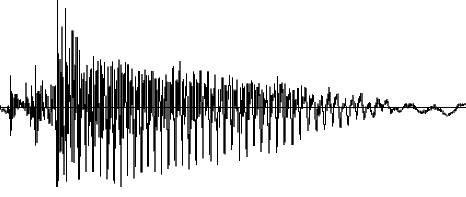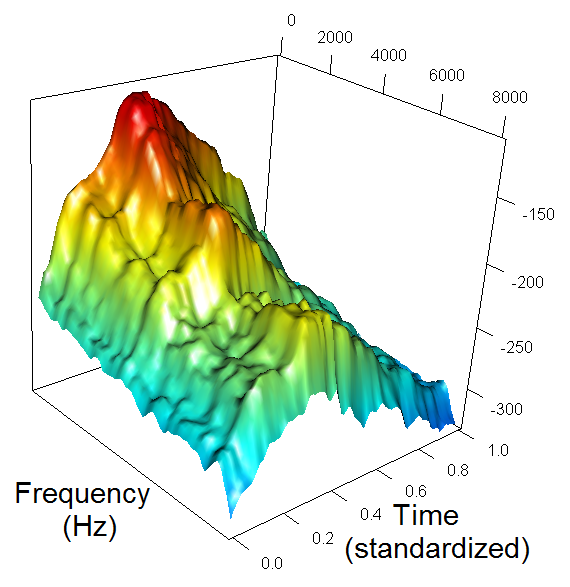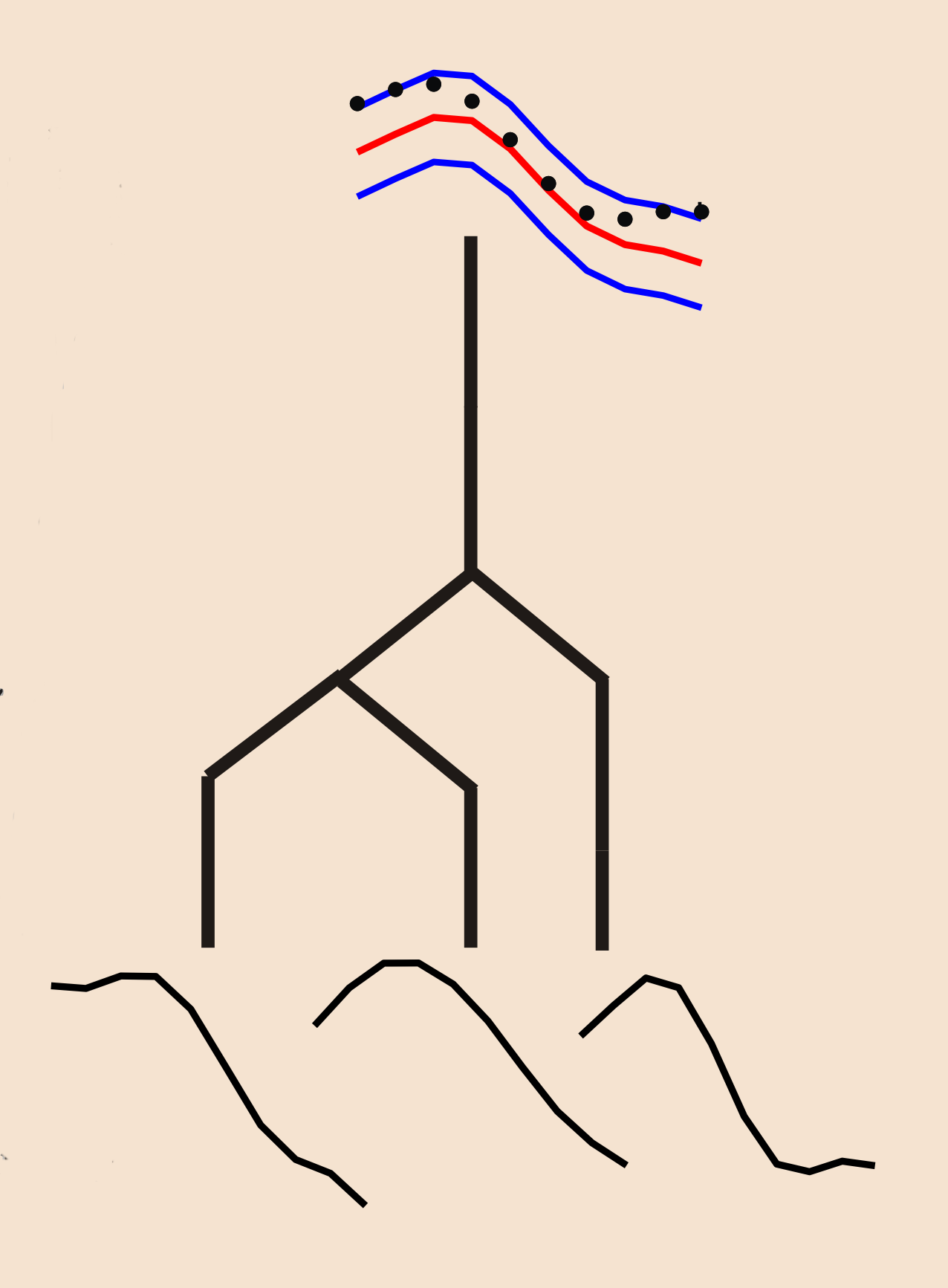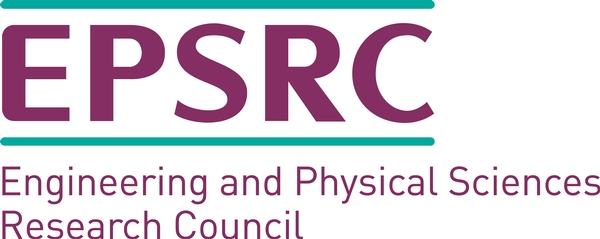


People
Papers
Presentations
Audio demonstrations
Indo-European digits database
Events/activities/blog
@ancientsounds@mastodonapp.uk
One-day
teach-in on Acoustic Modelling of Sound Change
Centre for Linguistics and Philology, University of Oxford, 8th January 2016
Most recent update: 6th January 2015. Please pay special attention to all of the updates in RED.
Registration for this event is now CLOSED.
Over the past few years we have developed a variety of useful computational techniques for modelling sound change using audio recordings and speech analysis/synthesis methods, the results of which are illustrated elsewhere on this site. In this workshop, John Coleman and other members of the Ancient Sounds research group will give hands-on classes about those techniques and how to carry them out on your own laptop computer. In this way we hope to spread the skills and equip participants with the practical know-how to carry out such analyses themselves. The target audience is graduate students, postdocs, and other researchers interested in historical phonology and comparative philology. Recognising that some (perhaps many) people in these areas of study may have fairly little experience of computer programming, mathematics, statistics, signal processing or speech technology, the day-long course is designed specifically for beginners to these subjects, especially those from a humanities/arts background, and we focus on practicalities.
Refreshments and a
sandwich buffet lunch will be provided. Please inform us by 11th
December if you have any special dietary requirements. Please let
us know of any other factors we should be aware of, such as
mobility, hearing or sight difficulties.
There is no charge
for participation, but you'll need to cover your own travel costs.
We can also provide advice about where to stay in Oxford, if you
ask. All sessions will be in Room 207, first floor, Centre for
Linguistics and Philology, Walton Street. This location is marked
by a green shape on the map at http://www.ling-phil.ox.ac.uk/contact
In order to follow along during the classes, you'll need to bring your own laptops; we'll be anticipating that some people will have Apple laptops, others will have Windows machines, and perhaps some people (like us) will be using Linux. We will provide software and tuition suitable for all these platforms; we'll also ask you to download and install various pieces of software in advance, in readiness for the classes.
The main software we
shall be using is GNU Octave, a language similar to Matlab (and
somewhat like R). It is really quite simple to start to learn, and
in the workshop we shall take you step-by-step through many useful
examples.
It is very simple to
download and install Octave in Linux, or Windows, from here: https://www.gnu.org/gnu/octave/windows
It is possible, but in our experience rather more difficult, to install Octave on a Mac, from here: https://www.gnu.org/software/octave/download.html
Our
IT wizards here have produced a package for Macs that makes it
somewhat easier: this installs Linux on your Mac as a
"virtualbox" virtual machine, with Octave installed in Linux.
The instructions for that are here.
One way or another,
you'll need to get Octave installed and running on your laptop
prior to your arrival at the workshop.
It would be helpful if you test out Octave with some simple computations such as these:
> x = [1 2 3 4 5];
> y = x.^2
ans =
1 4
9 16 25
> plot(x,y)
(This should open a new window and plot a figure.) Please also download and install the following extra packages in Octave (NB these are already included in the Mac virtual machine download mentioned above):
> pkg install -forge io
> pkg install -forge statistics
> pkg load statistics
And also:
>
pkg install -forge control
>
pkg install -forge signal
> pkg load signal
If
any of the above doesn't work for you, or is too difficult,
please (a) don't panic! (b) contact us by email so we can help
you. The course is practical, so we
shall be taking everything one step at a time. But if you
could get the software onto your laptop before we get started,
that could save some time in the first session.
There will be a number of power points on extension leads in the classroom, so there should be no problem in keeping your laptops charged up, but it would be advisable for you to have a full charge to start with. There will be eduroam wifi. For anyone not on eduroam, we will have a small number of wifi login accounts for visitors.
Please
inform us as soon as possible what kind of laptop (i.e. Windows,
Mac, Linux flavour) you will be bringing, and whether you have
eduroam.
Other software that would be useful (not essential) to have:
- If you already have and know how to use Praat, that could be useful (but is not essential)
- If you don't have or know how to use Praat, you might like to
try wavesurfer instead (downloadable from here),
which we'll also be using a bit during the workshop:
- For Windows: http://sourceforge.net/projects/wavesurfer/files/wavesurfer/1.8.8p4/wavesurfer-1.8.8p4-win-i386.zip/download
- For Apple OSX: http://sourceforge.net/projects/wavesurfer/files/wavesurfer/1.8.8p4/wavesurfer-1.8.8p4-osx-i386.dmg/download
- For
Linux: http://sourceforge.net/projects/wavesurfer/files/wavesurfer/1.8.8p4/wavesurfer-1.8.8p4-linux-i386.tgz/download
Schedule (subject to adjustment as we go along ...)
9:00 - 9:30 arrival and registration; help with getting your computer ready for the day (WiFi, Octave etc).
AM Foundations
9:30 Introduction to the course
9:30 - 11:00 Session
1: Analysis of speech, from signals to cepstrograms
Basics of speech signals and representations of speech sounds;
digitization, digital signals ; parameters extracted from
signals; spectra; spectrograms; linear prediction; cepstral
analysis; cepstrograms
11:00 Break and catch-up/help time
11:30 - 13:00 Session 2: Synthesis of speech from spectral representations
13:00 Buffet lunch and catch-up/help time
PM Applications
14:00 - 15:00 Session
3: Interpolation for modelling sound change
Temporal manipulation/time alignment; examples of sound change
continua; hybrid sounds; analysis of rate and direction of
change
15:00 - 15:45 Session 4: Modelling statistical variation in sounds
Average, centroid, central tendency, normalization, variance, covariance
15:45 Break and catch-up/help time
16:00 - 17:00 Session 5: Modelling statistical variation in sounds (2)
Distances between pronunciations and languages; variation over time and trees; extrapolation to past and future times
Lodging
possibilities, for those needing accommodation:
1) If you fancy staying in a college room, this can be quite an
experience. Rooms are available commercially to suit a variety
of budgets, from University Rooms, via
http://www.universityrooms.com/en/city/oxford/book/rooms/local
2) Oxford Tourist Information Office has a tool to search and
book accommodation.
http://www.visitoxfordandoxfordshire.com/
 |
 |
 |

